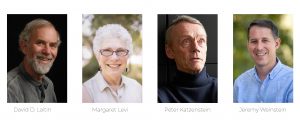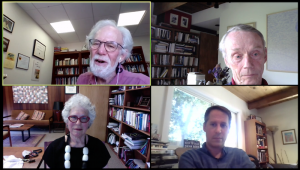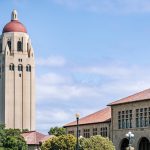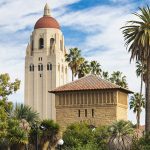David Laitin, Margaret Levi, Peter Katzenstein, and Jeremy Weinstein
What are the odds that three consecutive winners of the Johan Skytte Prize—the equivalent of the Nobel in political science—would be friends who had been classmates as undergraduates? When Stanford professor David D. Laitin was named this year’s winner, he followed his Swarthmore College roommate, Peter J. Katzenstein (2020) and their friend Margaret Levi (2019), David’s colleague in Stanford’s Department of Political Science and a Bryn Mawr alumna. The three of them became friends when they studied political theory in parallel Swarthmore seminars in 1966 and ruminated about politics and political science in post-seminar suppers.
Here, they come together to reflect on their formative years, career milestones, and future plans.
1:30: Swarthmore and Bryn Mawr in the 1960s
9:46: The liberal arts approach to political science
30:15: How to be flexible and explore new terrain over a long career
43:00: The future of the liberal arts college model
Discussion Highlights
Jeremy Weinstein: Let me start with the natural question that’s likely on people’s minds as I sit with three winners of the Skytte Prize, two from Swarthmore and one from Bryn Mawr. What is in the water in the tri-college system? Why is it producing so many brilliant political scientists?
David Laitin: Well, at Swarthmore in the 1960s, in my class we had 24 political science majors, making up 10 percent of the student body, and 44 history majors, making up 17 percent, who were also engaged politically. We talked politics all the time: voting rights, the Vietnam War, the Barry Goldwater challenge to the presidency, the free speech movement at UC Berkeley, and the Port Huron Statement by the Students for a Democratic Society (SDS). Politics was in the air.
And thinking back on the syllabus for my classes at Swarthmore, we would have satisfied the Malcolm Gladwell rule for mastery, with 10,000 hours of reading. So that, plus high levels of political discussion, made it a hotbed for people who wanted to develop ideas in political science.
Margaret Levi: Bryn Mawr was such a remarkable place. This was before women could go to most first-rate universities in the country, and some of the women in my class went on to amazing achievements: Drew Gilpin Faust was the first woman president of Harvard, Lynne Meadow founded the Manhattan Theater Club, and I could go on. This was a place where women were allowed to talk, and we were given a lot to read and think about. I helped organize the first SDS march on Washington, and we got over a third of all three campuses to turn out for that. It was a remarkable moment politically and intellectually for women, who were beginning to be encouraged and given some capacity to work in their areas.
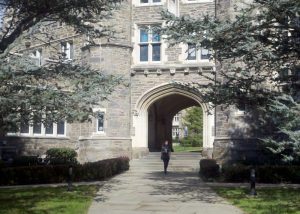
Peter Katzenstein: It was a fully politicized atmosphere for me as a foreign student, and sometimes quite uncomfortable. Someone told me he’d never buy a German car; he had family members who had died in the Holocaust. Our roommates, all they talked about was how to avoid the draft. Here were my classmates fully politicized by the Vietnam War, and here I was, a German citizen, not really feeling that I could tell the Americans what to do and what not to do.
Jeremy Weinstein: Amid the tumultuous politics of the time, where did that intellectual spark around the study of politics come from?
Margaret Levi: Because I was so politically engaged, I actually tried to avoid the study of political science. I thought my scholarship should be somewhat separated from that. But from the time I was a child, I was also really involved with reading and studying and thinking and trying to disentangle the world and understand it. I do believe the Marxist notion that you need to understand things in order to change them, and that kept driving me back to political science. Not just the study of civics—how people pass a bill or how a court case might be decided—but why we have the institutional arrangements we have, why we have the distribution of power and inequity we do, why it is that citizens can relate to government in very different ways. Those are the issues that still drive me intellectually as well as politically.
David Laitin: It’s interesting, I have zero recollection of ever talking about politics in my Swarthmore seminars. The approach was almost all descriptive—that is, the course in the Soviet system was basically a history of the Communist Party, with no analysis whatsoever. Most of the work in political thought was reading the cannon and seeing the consistencies of thought and the normative foundations.
Peter Katzenstein: I think David is basically correct, but I took a seminar with Kenneth Waltz, and that was very different. I basically read the footnotes to his book Man, the State, and War, and it was highly analytical.
David Laitin: But actually, I loved reading some of the very difficult works in the canon. One time in a seminar, the professor, J. Roland Pennock, asked for a summary of something we had read. I started looking at all my notes, but then I closed my notebook and simply told him what I thought was going on in the book. He looked at me and said, “yes, that’s right”—and I realized I had learned something. I had learned to take a complex argument and restate it in my own terms. That’s one of the key things I have loved learning throughout my career.
Margaret Levi: At both Bryn Mawr and Swarthmore there was a strong emphasis on writing, and that was critical to our development. We did an immense amount of writing and got lots of critique, not only from the faculty but also from each other. I think that made a huge difference in making us successful, as we’re all good writers in our own way. To take ideas and turn them into something people can hear—that’s a skill I worry students are not developing to the same extent today.
Jeremy Weinstein: One of the striking things about your trajectories is that you’ve had illustrious research careers, but you came from undergraduate-focused teaching colleges, institutions that really prize the engagement of faculty with students. What did you take from that experience that shaped your approach to being a teacher and mentor?
David Laitin: What really distinguished the Swarthmore approach—and it’s something I carry into my teaching today—is that we listened to each other in seminars, and the views of our fellow students were of great importance to us in the seminar. In my classes I don’t want to see a one-way discussion with each student speaking directly to me, the professor.
When I see that this kind of horizontal discussion isn’t happening, I’ll ask students who raise their hands to first summarize what the previous student said. Sometimes they’re shocked, because they weren’t listening, they were just waiting for their chance at the professor. Taking each other seriously and being able to listen and to summarize arguments that come from foundations different than your own is something I think has paid off for me, as a teacher but also as a researcher.
Peter Katzenstein: When I taught graduate students I would sit in a different seat each time, because it would disrupt physically their sense that there’s a designated space for the professor and one for the class. Hierarchy in a seminar is not a good thing.
Jeremy Weinstein: All three of you developed international and comparative interests in politics. What got you interested in international issues?
Margaret Levi: Another great thing about liberal arts college education is that you get to know other disciplines. I took a lot of history classes, as well as literature, sociology, psychology. You learn that there are very different approaches to studying things and understanding a problem. I learned that you can’t just ask a question about something; it has to be put into a comparative perspective, and that might be multiple cities or multiple countries, or it might be a historical perspective. So there’s a larger framework in terms of what we’re contrasting with and over what amount of time things change.
Jeremy Weinstein: Peter, you’ve dedicated your career to thinking about the international system and how it’s organized. How have you picked the questions you’ve pursued in your career, and what was the foundation for the intellectual direction you took?
Peter Katzenstein: I come from an intellectual tradition that says there is no great separation between domestic politics and international relations, so this division between American versus international versus comparative never made much sense to me. My undergraduate courses typically are listed under three sub-fields. So the first step was easy: political economy, which was just being rediscovered by my generation fresh out of grad school.
And second, I tend to get bored. By the late 1980s, the Cold War had ended, I was ready for a change, and I thought it would be an interesting time to study security. I picked an approach that people thought was crazy, cultural sociology. People said, “Katzenstein has gone postmodern! What’s happened to him?” It was the early days of constructivism. After about ten years, that lost its appeal. I was driven back to the question of uncertainty and risk, and I ended up reading physics for two years.
Jeremy Weinstein: There’s a theme here in that you all engage in a flexibility and adaptability over time in your long careers, which isn’t always the case as one looks across the profession. Lots of scholarly careers are defined by a single agenda or perspective.
David Laitin: I think this relates to the liberal arts education we had. We might not have learned how to use the latest techniques to solve research questions or design a research project that would be accepted by peer reviewers in journals. But we did learn that we could teach ourselves, and we weren’t afraid to do that.
At one point I landed on the question of Islam and Islamic migration into OECD states, and how that was going to change the landscape. Is there a way to actually measure the degree to which Muslims are succeeding in the host countries where they are settled, compared to what they would have achieved if everything were the same but they weren’t Muslim? When I went to France to start the research, people thought I was crazy to try to measure this. I had to teach myself not only to speak French but also to run experimental games in the 19th arrondissment of Paris. I had to teach myself to identify what could be called a “Muslim effect” by strategies of population matching. But I had the confidence I could learn these things, and that goes back to the way we were taught in a liberal arts college.
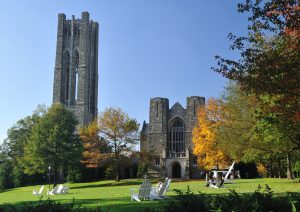
Jeremy Weinstein: Another element of flexibility and adaptability in an intellectual pursuit is the willingness to update and change your views on things as a result of what you learn. Margaret, was there ever a hypothesis you held strongly but later changed your mind about?
Margaret Levi: I experienced that with Of Rule and Revenue, my transformative piece of work that came out of my interactions with Douglass North, Michael Hechter, Michael Taylor, and others, who also were experimenting with game theoretic political economy and stuff that came out of economic history.
I started with the presumption that economic transaction costs would explain the variation in tax systems and the choice of tax systems across countries. I discovered that they play a role, but much more important is the political transaction costs. That led me to the notion of quasi-voluntary compliance and the conditions under which people are willing to have resources extracted from them. Those are political conditions. So in writing a book that I thought would be framed by economics, I ended up becoming a stronger political scientist.
Peter Katzenstein: When I did my first readings in political science, the two-party system in America was presented as being so responsible, not bound by ideology like all the fascists and communists. During the 1960s I thought, okay, everyone is fighting but it isn’t going to fundamentally change the house. And that’s no longer true. I’ve been worried, ever since Bear Stearns went belly up in 2008, that disastrous things would follow from the financial crisis. We had the election of Barack Obama, but I think that produced a delayed reaction.
I now think we will remain a democracy—either right-wing or left-wing, maybe both—but it will be a Latin American political system. We are on the edge of something like a regime change, and I think there is no way back to what I assumed the United States was going to be for my lifetime. Now that we have an anti-democratic conservative party, if Republicans win in 2022 and 2024, we could be in for something totally new and different, and I had never conceived of that possibility.
David Laitin: As a graduate student I was a follower of the cultural anthropologist Clifford Geertz, who believed in something called a cultural system. And by that he meant, if you speak a certain language or believe a certain religion, that has a direct impact on your political views. And when I did my dissertation research in Somalia, in fact, I found that if you got students in role-playing sessions speaking in Somali or signing up to speak in English—they were bilingual— the political orientations would be different. So I wondered if I could do the same for religion as for language, and I went to Nigeria. There you have people who are exactly alike in every respect but different in religion. I gave them all sorts of political questions, as I had in Somalia, but there was no difference between Christians and Muslims.
I then spent two years trying to figure out what happened to these cultural systems, and I developed a notion of people having a range of cultural repertoires, and only one or some of them become dominant, something on which they condition their behavior. A cultural system is different from a cultural repertoire, and that’s the big change in my thinking about culture, moving from Somalia to Nigeria.
Jeremy Weinstein: This has been such a powerful story about your intellectual origins. My experience of Swarthmore was similar to yours, in that a lot of what we did was the history of political thought, with deep and in-depth description, and I discovered very new things about what political science was when I got to graduate school.
But I’m glad that my undergraduate education didn’t prematurely narrow me into a single disciplinary perspective about how we learn and how we know. I worry when the undergraduate experience is unnecessarily and prematurely narrowed into teaching the rules and the approach of a discipline. I think it limits our ability to push out the frontiers of knowledge in new directions if we’re in the business of cloning a single model.
The liberal arts college model has played such a formative role in each of your careers. What are the challenges it faces in today’s higher education landscape? What will help sustain it?
Margaret Levi: I am worried about the survival of the liberal arts institutions. I think they have the value you described, but they are under incredible economic pressure, as well as the pressure to be more like professional schools as opposed to places where people have the chance to explore, try things, and experiment in a variety of ways. There’s something about a liberal arts college that provides protection for that in a way a big university doesn’t. We actually knew the administrators, and even the deans and the president of the college were not so distant. We felt like if we had some trouble there were people to help.
Peter Katzenstein: I think at Cornell, where I teach, the quality of undergraduates over the past ten years has become so much better. I have confidence in the creativity and hard work and commitment of these students. That makes me optimistic for the future, whatever the model is within the institutions they operate in—they will figure things out for themselves.
Jeremy Weinstein: Thanks for bringing us to an optimistic note to close on, Peter. I want to congratulate each of you for this extraordinary achievement and for being recognized for your lifetime’s worth of work in this discipline. To have this prize given to three exceptional people who came of age in the same set of institutions in the same period is really an amazing story.
Each of you and your intellectual careers models a breadth of interest, a seriousness of purpose, and ability to learn and change and grow. I don’t think we always spend time sharing with others our stories about where those research questions came from and how we approach them— and where we learn to be the kinds of scholars we are. So thanks for spending some time together today, and congratulations again.
David Laitin is the James T. Watkins IV and Elise V. Watkins Professor of Political Science at Stanford University and faculty co-director of the Immigration Policy Lab.
Margaret Levi is the Sara Miller McCune Director of the Center for Advanced Study in the Behavioral Sciences (CASBS), Professor of Political Science, and Senior Fellow of the Woods Institute, Stanford University.
Peter Katzenstein is the Walter S. Carpenter, Jr Professor of International Studies at Cornell University.
Jeremy Weinstein is Professor of Political Science, Fisher Family Director of Stanford Global Studies, and faculty co-director of the Immigration Policy Lab at Stanford University.


